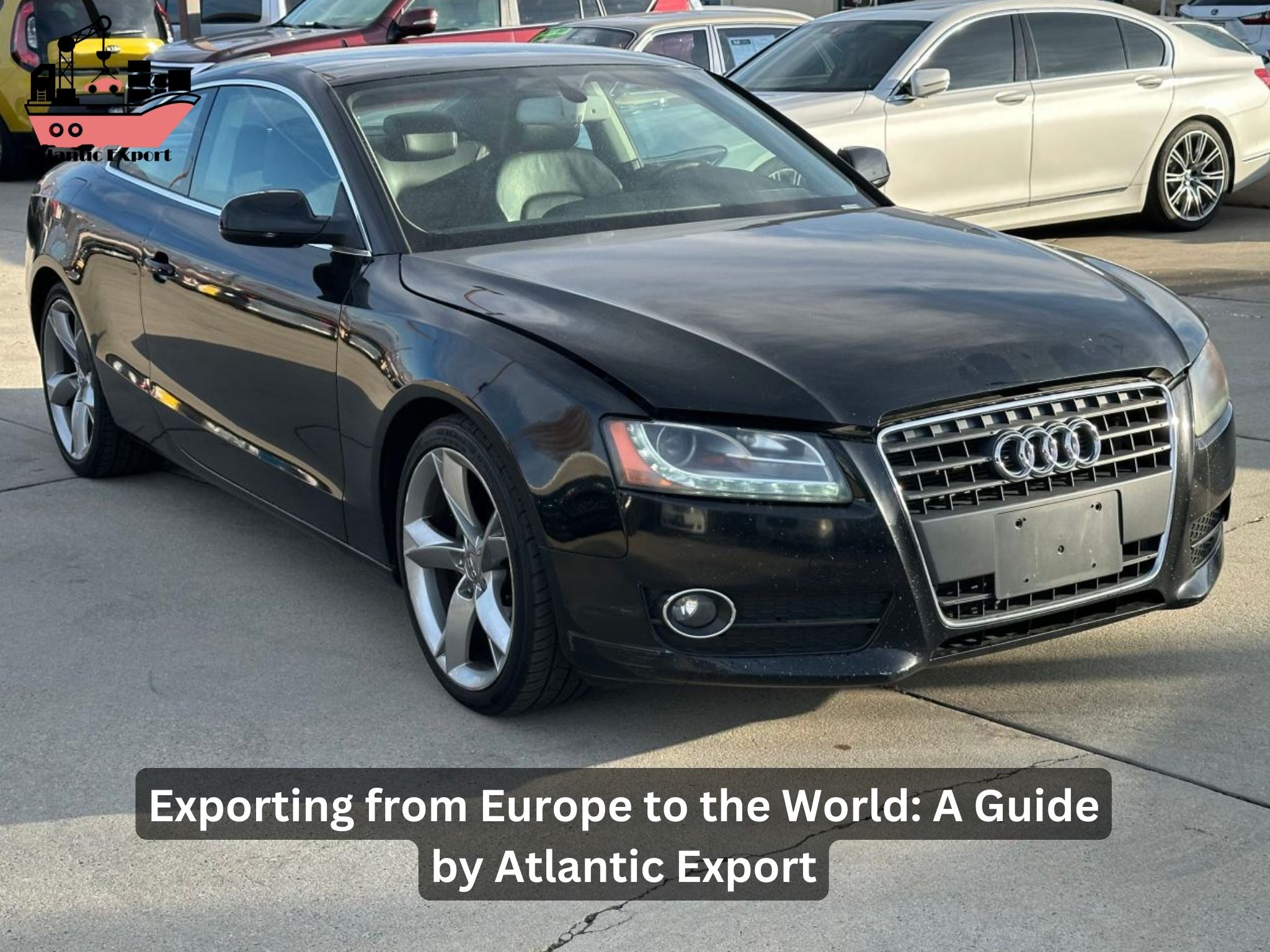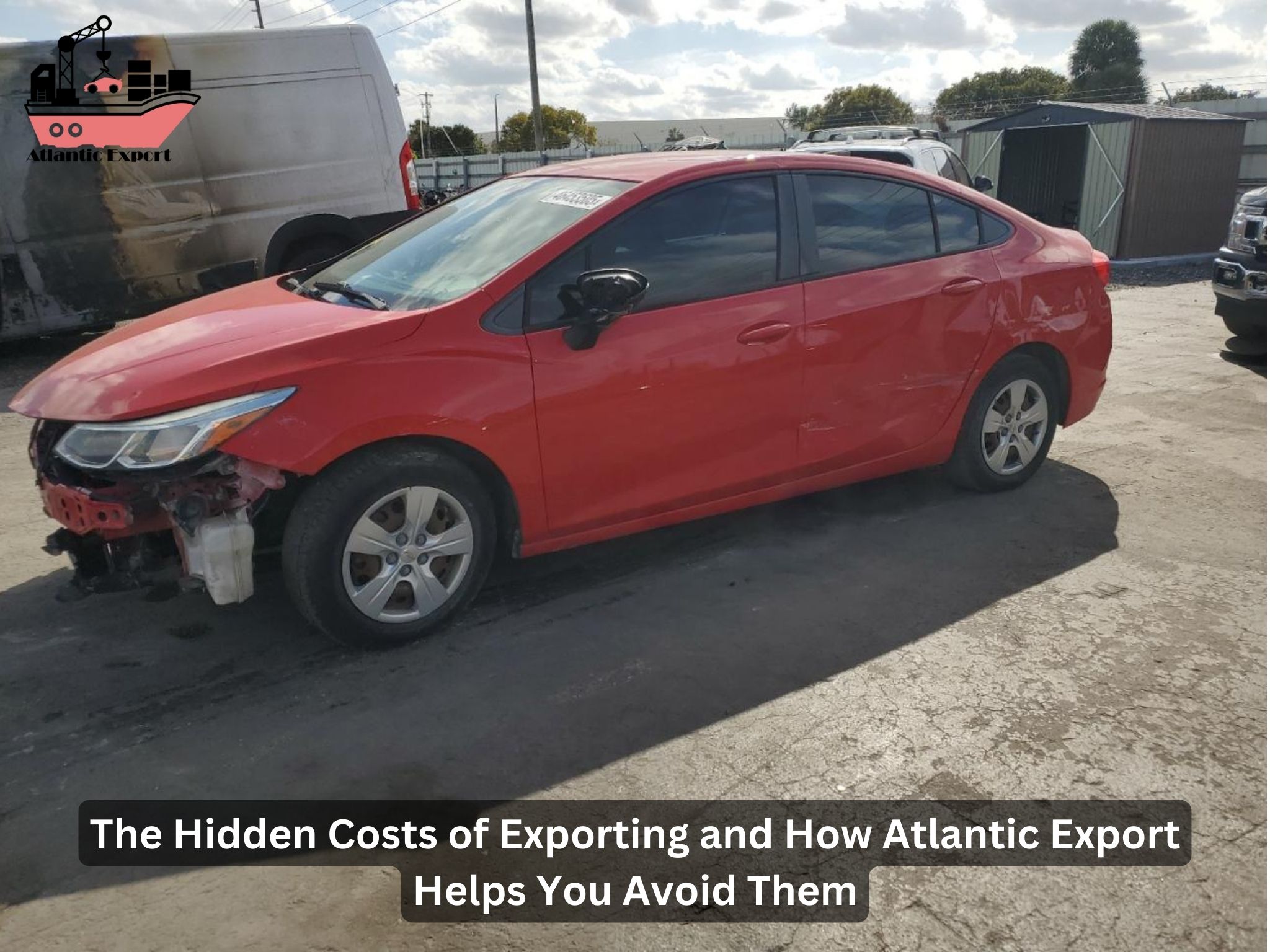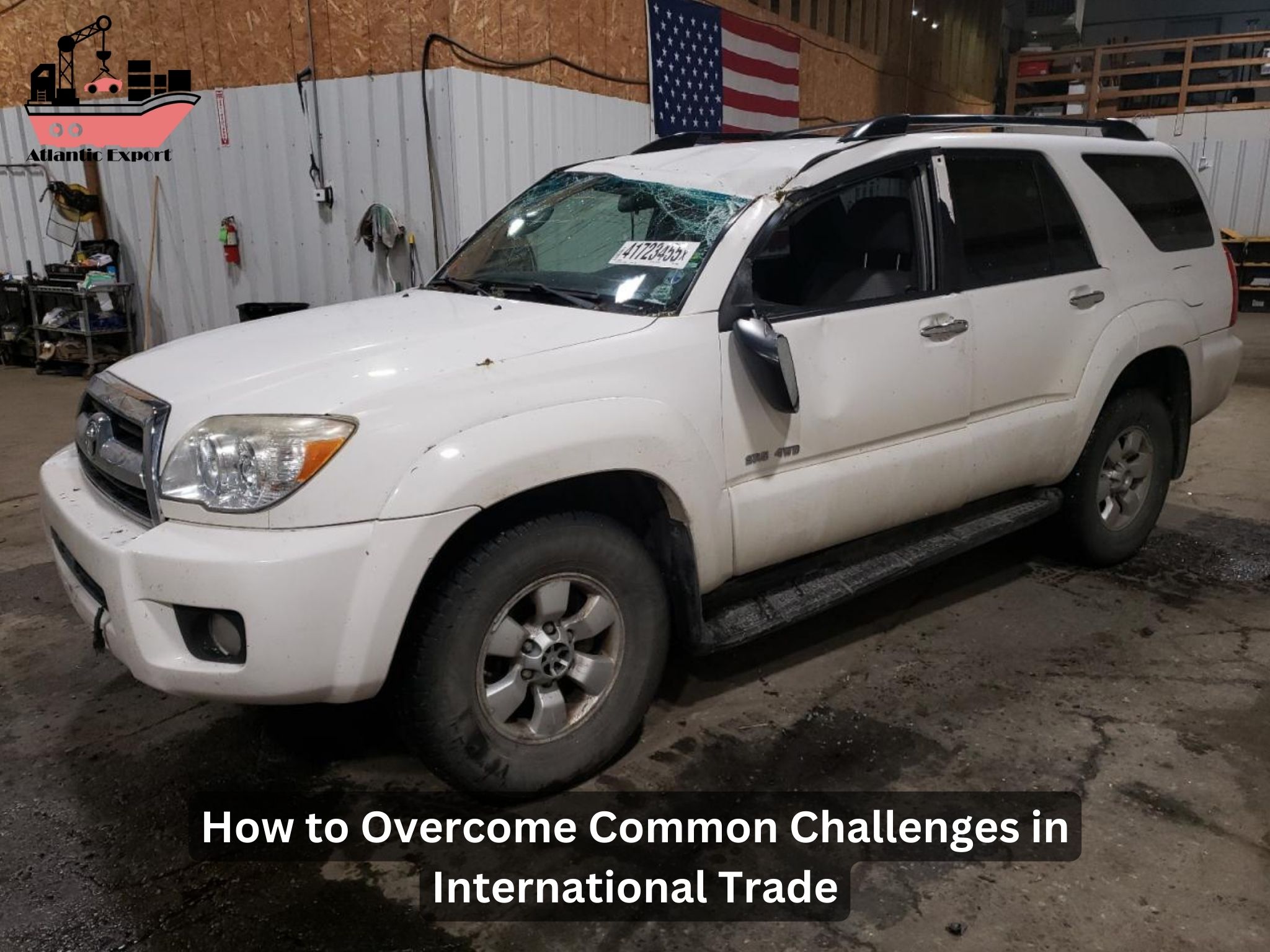In an ever-evolving global marketplace, businesses need reliable, swift, and intelligent export solutions to thrive. Atlantic Export Inc is at the forefront of delivering high-quality, efficient, and compliant logistics services, helping companies expand their reach to international markets. With a strategic presence in regions like Fawn Creek Township and Atlantic Canada, our solutions cater to a diverse range of industries, ensuring that businesses of all sizes can navigate complex trade landscapes with ease.
Pioneering Export Solutions with Precision and Speed
Atlantic Export excels in providing export solutions that streamline the movement of goods across borders. Whether you are a small business in Kansas looking to access the Canada market or a large corporation targeting Europe market development, we offer tailored strategies that meet your unique needs. Our commitment to high delivery standards ensures that products reach their destinations on time, every time.
Optimized Logistics for Seamless Delivery
Logistics lies at the heart of export success. At Atlantic Export, we leverage cutting-edge logistics solutions to optimize every aspect of the supply chain. From freight forwarding and customs clearance to warehousing and shipment tracking, our services cover it all. Our team understands the intricacies of international traffic in arms regulations (ITAR), ensuring full compliance when handling sensitive or regulated items.
- Freight Forwarding: Efficiently managing cargo movement through air, sea, and land.
- Customs Clearance: Navigating complex regulations to ensure hassle-free border crossings.
- Warehousing & Distribution: Safe storage and strategic distribution hubs for rapid deployment.
- Technical Data Management: Secure handling of United States Munitions List (USML) items.
By combining state-of-the-art technology with expert human oversight, we deliver reliable solutions that enhance export performance.
Empowering Businesses to Conquer Global Markets
Atlantic Export is more than just a logistics provider; we are a growth partner. Our export development programs are designed to help businesses identify and penetrate new markets. Whether you’re exporting blueberries from Nova Scotia or OEM products from the United States, we create custom roadmaps that drive success.
Data-Driven Market Insights
Understanding market dynamics is crucial for sustained growth. We offer deep market analysis, drawing from resources like the Census Bureau and trade databases to provide actionable insights. By evaluating factors like median income, total population, and capita income, we help businesses make informed decisions about where to launch their next export venture.
- Target Market Identification: Pinpointing high-potential regions based on economic indicators.
- Competitive Analysis: Assessing market saturation and competitor performance.
- Product Localization: Adapting products and messaging to resonate with local audiences.
Supporting Canadian Businesses in Global Trade
With a strong presence in Atlantic Canada, we champion Canadian businesses seeking to expand globally. From fruit exporters to tech innovators, we provide the infrastructure and expertise needed to scale internationally. Our partnerships with government bodies like the Government of Canada and trade organizations such as the Atlantic Chamber of Commerce ensure our clients benefit from available grants, funding programs, and policy support.
Atlantic Express Delivery: Speed and Reliability Combined
Our Atlantic Express Delivery service offers expedited shipping options for time-sensitive items. Ideal for perishable goods like blueberries, jams, and desserts, this service guarantees rapid delivery without compromising quality. We understand that in industries with tight timelines, delivery speed can make or break a deal, which is why we prioritize speed without sacrificing accuracy.
Atlantic Export’s Commitment to Speed and Reliability
Timely delivery is a critical component of successful exporting. Atlantic Express Delivery, a subsidiary of Atlantic Export, is dedicated to maintaining the highest delivery standards for international trade.
Fast and reliable delivery services include:
- Expedited shipping for urgent freight requirements.
- Cold-chain logistics for perishable goods such as blueberries and other fruits.
- Door-to-door delivery options for businesses and individual customers.
- Advanced freight tracking systems for real-time updates.
By prioritizing delivery capacity, Atlantic Export Inc. guarantees that export packages reach their destinations on schedule, ensuring business continuity for clients.
A Track Record of Export Success
Over the years, Atlantic Export Inc has helped countless companies achieve increased export sales and sustainable growth. Whether facilitating Fawn Creek businesses entering international markets or supporting Atlantic incubator startups scaling their distribution networks, our impact is undeniable.
Our ability to adapt to evolving global trade landscapes, combined with unwavering dedication to client success, positions Atlantic Export as a leader in the export industry.
Why Choose Atlantic Export?
- Comprehensive Solutions: From export package creation to post-delivery support.
- Compliance & Security: Full adherence to ITAR, USML, and local regulations.
- Client-Centric Approach: Personalized strategies aligned with business goals.
- Proven Expertise: Years of experience navigating complex export challenges.
Contact Us Today
Ready to take your business global? Reach out to Atlantic Export Inc for a consultation. Our team is here to craft the perfect export strategy for your unique needs, helping you seize opportunities in international markets and beyond.
Conclusion: The Future of Smarter Exporting with Atlantic Export
As global commerce continues to evolve, businesses need export solutions that are fast, compliant, and technology-driven. Atlantic Export Inc. stands as a trusted partner in freight forwarding, logistics, trade compliance, and international market development.
With a commitment to high-quality service, Atlantic Export ensures that companies of all sizes maximize their global potential through smart trading solutions. Whether exporting Canadian products, navigating ITAR compliance, or expanding into new markets, businesses can rely on Atlantic Export for a seamless trade experience.
FAQs
1. What industries does Atlantic Export serve?
We serve a wide range of industries, including agriculture, technology, consumer goods, and defense, providing tailored export solutions for each sector.
2. Does Atlantic Export handle customs clearance?
Yes, we manage the entire customs clearance process, ensuring your products comply with international regulations and cross borders smoothly.
3. Can Atlantic Export help with market research?
Absolutely! We provide data-driven market insights, helping businesses identify and enter high-potential markets with confidence.
4. Is Atlantic Export compliant with ITAR regulations?
Yes, we have extensive experience handling items regulated by the International Traffic in Arms Regulations (ITAR) and ensure full compliance.
5. How can I start exporting with Atlantic Export?
Simply contact us through our website or give us a call. Our team will guide you through every step, from market analysis to final delivery.
With Atlantic Export Inc, your business isn’t just shipping products — it’s launching into new realms of opportunity. Let us help you navigate the complexities of global trade with ease and confidence.









